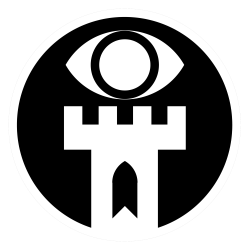With no cynicism or irony whatsoever, I am writing this today to tell you about the common tool of the best DMs in the world. You may scoff, you may click away, but I can assure you that if you read on by the end, you will agree and understand better how to master dungeons like Matt Mercer, Matt Colville, Aabria Iyengar, or even the much-revered Brendon Mulligan! Even Gary and Dave knew this one thing was the most critical tool in their war trove.
What is this book, you ask? Where does this fantastic website of perfect tools exist? If you want the tool, you will not look to your books, dice, or game mechanics. The mightiest tool you wield is the TRUST OF YOUR PLAYERS. If you think you can run a table without the people there trusting you, you are a fool who doesn’t know when a game is over. Play is only possible as an act of consent; anyone can stop playing at any time. Someone who doesn’t trust the authority of the DM is not playing the game anymore. They fundamentally can no longer believe that the rules of the game are applied fairly.
Earning Trust
You would think that most people know how to earn trust. It seems so simple. Do what you say you will do, don’t lie, be fair, people are equal in value, don’t discriminate, don’t hurt people. A shortlist, I think. If you followed those, people would probably think you were just great. People would trust you to the ends of the earth, with their taxes, their groceries, even their families. We almost seem custom-made to trust. We easily fall in with people who may not have the best intentions because of this very fact about our species.
Trust is an exceptional thing; you can have it, lose it, break it all very much like an object you possess. But to earn the trust, you must travel; it is a journey. Like understanding is to knowledge, it must be built on a bed of time and commitment. We will revisit the topic of commitment later.
What a DM can do to earn the trust of strangers
Greet them pleasantly. Smile when you say their name. Respect their boundaries. Use their preferred names and pronouns when possible. Look them in the eyes if they enjoy it. Speak clearly and thoughtfully. Listen more. Make their discomforts into your discomforts and become comfortable.
What a DM can do to deepen a player’s trust (continue the baseline for strangers and):
Please include them in the story and the gameplay. Help them play. If they stumble, encourage them, make it safe to fail. Make their character a meaningful part of the world and make the world feel real for them. Engage them about how they feel, not just about the game, in life. Treat them like family if they enjoy it. Remember their backstories and abilities.
To repair trust that has been broken:
You can’t; you have to start from zero with a new stranger. The only possible way to repair trust with someone you have broken it with is if they can forgive you, and that should be based on your willingness to do the work to maintain and deepen trust, in general.
It may seem a bit dramatic, but as you can see, there are a lot of ways to build trust, but once broken, you can’t get back onto that journey without that person’s permission. With this truth in mind, it should be obvious that breaking a player’s trust among the worst things you can do as a DM. And you will see all the greats talk about and show care and compassion for their friends around the table.
The Most Masterful Table
In conclusion, together we can help each other to provide better and more meaningful friendships with our players, deepen player trust, and in turn run the best damn tables of our lives. When new players come to your table, be inviting and patient. If a player seems frustrated at how long it’s taking, talk to them. Make sure they can handle the change of pace. Most important for all this, as a DM be ok with collaborating with your players to tell a cool story. It doesn’t just have to live in your head and know that trusting a player with some critical information can sometimes get the story you want happening at the table.
